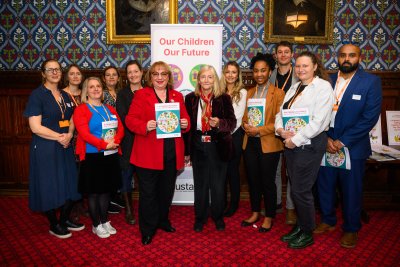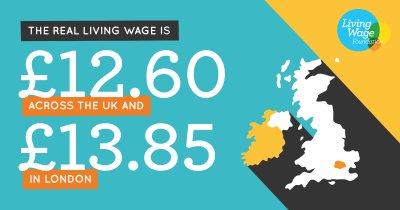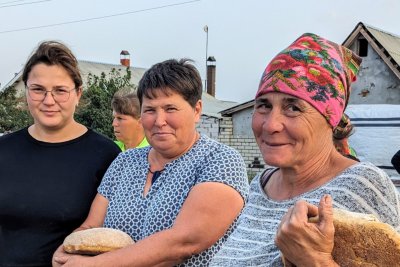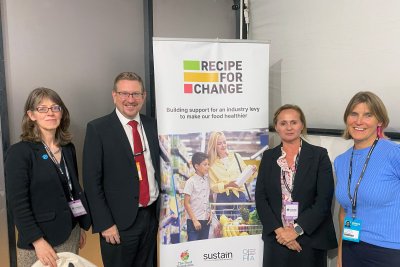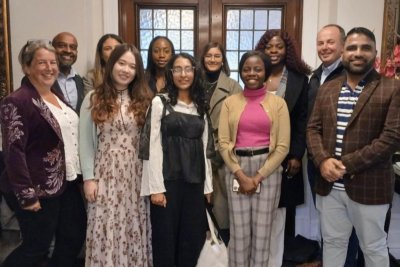 Pexels
Pexels
Now is not the time to roll back universal free school meals
Free school meals are not universally available to all primary age pupils, despite their proven benefits. And in one area with a robust universal scheme, they are now under threat. Morven Oliver-Larkin and Sara Mekerri explore why such cuts are likely to exacerbate financial difficulties faced by children, families and communities.
Across England, all infants (from reception to year 2) in primary schools can have a free school meal. Beyond this age group, eligibility for free school meals in primary and secondary school doesn’t even include all those children from families receiving Universal Credit. Only a handful of forward-thinking localities extend the universal scheme beyond infants, despite its multiple benefits. However, with budgets stretched, this is now in question even in some of these areas.
Newham, Tower Hamlets, Islington and Southwark in London all have Universal Free School Meal (UFSM) schemes for all primary school students, funded by the local council, whilst Hammersmith and Fulham is currently undertaking a secondary school pilot.
In these areas, the universal approach is thought to have a profoundly positive impact on children’s health, social development, and educational attainment. They also provide a safety net for families experiencing hardship (who would not meet the limited threshold for free school meals), alongside boosting the local economy through the creation of good, fairly paid jobs in catering. This is particularly worthwhile in today’s economic climate, where an estimated 400,000 children in London are living in food insecure households, whilst 14% of UK families with children have experienced food insecurity in the past 6 months. But despite this insecurity, many of these children are not eligible for free school meals.
These UFSM schemes provide all primary school pupils with a free school lunch regardless of their family’s household income nor whether their guardians are in receipt of particular qualifying benefits. It is a discretionary service, funded at the local authority’s choice rather than any legal obligation.
A threat to free meals in Newham
Despite the considerable benefits to children, families and communities, one of these vital schemes is currently under threat in Newham. This pioneering scheme sets a gold standard amongst free meal provision and now more than ever is needed to combat child food poverty in London.
Nevertheless, the council is considering cuts to Newham’s ‘Eat for Free’ universal free school meal scheme for all children in key stage 2. This is due to financial pressure facing the council in the form of a £250m loss in its budget over the past decade. Newham Council is currently undertaking a public consultation until 17 January 2021.
It’s heartbreaking to hear that Newham’s brilliant work around child food poverty is under threat. Throughout the pandemic the council has been a trailblazer in its response to the Covid crisis and to start the year with this news must be devastating for the teams that have worked so hard, and particularly for the families that need the support. With a staggering 52% of children in Newham living in poverty this is the wrong time to be cutting the lifeline of universal free school meals.
At School Food Matters we will continue to campaign for fairer funding for free school meals as it’s become abundantly clear that the threshold for eligibility is set far too low. But until we can secure a more equitable system for ensuring that no child goes hungry, schemes such as Newham’s 'Eat for Free' are vital and must be protected.
Stephanie Slater, Founder and Chief Executive at School Food Matters
Below we set out key reasons that these schemes should be maintained, and indeed expanded further – as argued by the Mayor of London earlier this year.
We then outline further details of the proposed cuts and consultation in Newham and how local residents can have their say.
Why maintain UFSM?
A universal approach that ensures all children can access good food each school day bring multiple benefits. These schemes:
- Reduce stigma: eligible parents may be deterred from applying for free school meals due to their negative connotations, and for children being singled out as a ‘free school meal child’ can bring difficulties and even bullying. Indeed, research from Islington indicates that universal provision increases take-up of free school meals amongst those who are eligible; it was suggested that this may be attributed to the removal of stigma.
- Reach migrant children currently excluded from the national scheme: universal provision ensures that all children in need of a free school meal can have one, regardless of their immigration status. This includes children with the immigration condition ‘no recourse to public funds’ who do not qualify for free school meals. This is in spite of the fact that many of these children experience high levels of poverty as their parents are unable to access the social security benefits that are utilised to access entitlement.
- Reach all children in poverty: the current eligibility criteria for free school meals is narrow and excludes many children whose families are experiencing financial hardship. Recent calculations by the Child Poverty Action Group indicate that two in five, or 40% of, children living in households below the poverty line remain ineligible for free school meals.
- Improve educational outcomes: children’s nutritional intake has an impact on their educational performance. Evidence from previous pilot studies suggest that UFSM may play a role in reducing socio-economic gaps in attainment by increasing the nutrition of lower-income pupils' meals. Newham’s school meals evaluation also noted an increase in concentration and educational attainment.
- Improve children’s health: Poor nutrition results in higher risk of obesity, respiratory diseases and mental illnesses. UFSM helps to combat this by increasing children’s intake of healthy food such as fruit and vegetables and has been found to reduce the socio-economic differences in the quality of lunch time meals. In Newham, it was found that all school meals were more likely to meet School Food Standards.
- Create good jobs and build community wealth locally: universal free school meals can promote local and sustainable food production by increasing the market for British farmers, whilst also creating local jobs for cooking and supplying meals. This is partly because a universal scheme operates at a larger scale and with a greater level of stability. For example, in Newham, the scheme creates catering jobs in the borough. Juniper Ventures, a local authority trading company, supplies almost 75% of Newham primary schools’ meals. It is the fifth largest employer in Newham, with 86% of its employees residing in borough. The employees of this company are also paid at least the London Living wage and receive a local government pension.
Responding to Newham Council’s consultation
We urge anyone concerned about the potential changes to this scheme, especially those living in Newham, to respond to the consultation before it closes on Sunday 17 January. While we acknowledge the funding deficit faced by the council, we believe that the council should continue to provide UFSM.
The consultation itself is relatively short, and can be filled in in around 15 minutes. We are encouraging supporters to respond in this way:
- On the first page of questions, please tick the first option to each question, I.e. that ‘the council should provide free school meals to all children’
- On the following page, ‘disagree’ or ‘strongly disagree’ with both proposed changes (to charge parents, and to exclude children who do not live in Newham)
- Remember to submit your response by Sunday 17 January!
You may also want to sign a local petition to save the meals. Sustain has responded to the consultation and written to the Mayor of Newham to urge her to consider maintaining the scheme in its current form, for the reasons set out in this article.
Update 22 Janaury 2021: We are pleased to report that Newham Council has committed to maintaining the Eat for Free scheme for all primary aged pupils, regardless of their families' income.
Food Poverty: Millions of people in the UK struggle to get enough to eat. We’re working to change that through people-powered projects and campaigns that tackle the root causes of food poverty and ensure everyone has dignified access to healthy, affordable food.
Sustain
The Green House
244-254 Cambridge Heath Road
London E2 9DA
020 3559 6777
sustain@sustainweb.org
Sustain advocates food and agriculture policies and practices that enhance the health and welfare of people and animals, improve the working and living environment, promote equity and enrich society and culture.
© Sustain 2024
Registered charity (no. 1018643)
Data privacy & cookies
Icons by Icons8
